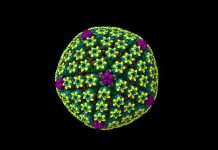A long follow up cohort study shows that loss of sense of smell could be an early predictor of health problems and higher mortality among older adult
It is well known that as we age our senses start to decline including sight, hearing and also sense of smell. Studies have shown that poor sense of smell is an early sign of Parkinson’s disease, dementia and is also associated with weight loss. However, these studies have been limited by their duration and lack of follow ups. The link between poor sense of smell and poor health outcomes is not well established. A new study published in Annals of Internal Medicine on April 29 aimed to assess the relationship between this sensory deficit and higher mortality in older adults.
In the current community-based cohort study, researchers utilized data from National Institute of Aging USA’ Health ABCD study. They evaluated information for a period of 13 years from around 2,300 older adult participants including men and women of different racial background (white and black) who were between the ages of 71 and 82. The information was collected from smell identification tests of 12 common odours including cinnamon, lemon and smoke. Based upon this information the participants were classified as having (a) good (b) moderate or (c) poor sense of smell. The health outcomes and survival of the participants were then tracked at 3, 5, 10 and 13 years after the start of the study including via telephone surveys.
Evaluations indicated that compared to older adults with good sense of smell, the individuals with poor sense of smell had 46 percent higher cumulative risk of death within 10 years and 30 percent higher risk within 13 years. The results were considered unbiased as they were mostly unaffected by gender, race or lifestyle factors. Further, the participants who were healthier at the beginning of the study developed higher risks. The higher mortality was attributed to neurodegenerative disorders (like dementia) and weight loss and to some extent cardiovascular diseases. Respiratory illnesses or cancer were not seen to be linked with loss of sense of smell.
The current study suggests that among the older adult population, having a poor sense of smell indicates almost 50 percent more risk or likelihood of dying within 10 years. This was also true for healthy individuals who had no ailments or health issues. Thus, poor sense of smell could be an early warning of deteriorating health before any other signs or symptoms of an ailment appear. One limitation of the study is the aspect that this correlation accounted for only around 30 percent cases of increased mortality among participants. For the remaining 70 percent cases higher mortality is unclear and could be most likely related to chronic health issues. Nevertheless, it is suggested that sense of smell screening or olfactory tests must be included in routine check-ups for older adults alongside the currently done standards tests for vital signs, hearing and vision. This study elucidates a possible connection between sense of smell and mortality and requires further studies.
***
{You may read the original research paper by clicking the DOI link given below in the list of cited source(s)}
Source(s)
Bojing L et al. 2019. Relationship Between Poor Olfaction and Mortality Among Community-Dwelling Older Adults. Annals of Internal Medicine. http://dx.doi.org/10.7326/M18-0775




































